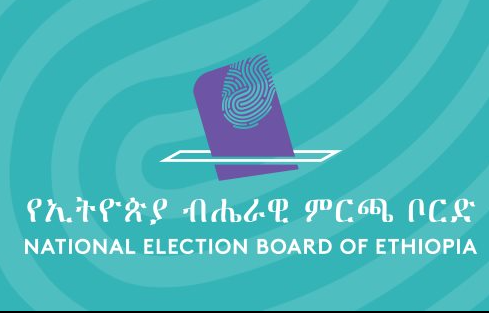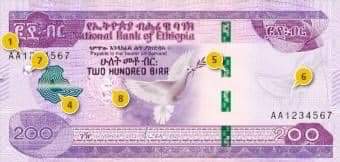Genuine and Transparent Policies are Desperately Needed to Boost Remittance Inflows
I am prompted to write this piece by a news item reported by Capital Ethiopia Newspaper that the government has changed the banking business proclamation, opening the insurance industry to Ethiopians diaspora, specifically those who hold foreign nationality but Ethiopian by birth.
This particular group of the diaspora community has always been entitled to similar treatment to Ethiopians as far as investment opportunity are concerned. However, the financial sector has remained an exception. The latest news is that the government is reconsidering its policy on this matter. However, the bizarre thing about the policy change that diaspora involvement does not cover the entire financial sector, but only insurance. At this juncture, it is appropriate to ask: what is the rationale for the government to limit the option to the insurance industry? I will come back to this point but let me start with how this matter has evolved in recent months.
A few months ago there was a big talk about diaspora hard currency accounts. The government announced a range of options for involvement of the diaspora in the financial sector. These included: hard currency saving accounts with favorable interest rates, special mortgage rates, and a diaspora dollar account which the account holder can use to import goods from abroad.
At first glance all looked fine and attractive. I have been trying to do my level best to draw the attention of the authorities to the huge potential in using remittances as a means of getting over the country’s severe foreign exchange crisis. So, the incentives listed above sounded sensible to me, a step in the right direction to realize that potential. As it happened, however, none of the above were genuine and sincere policy shifts.
Let me start with the case of diaspora mortgage. I got an opportunity to take part in a discussion with a group of bankers who traveled abroad to promote the new products. It was during that discussion that my hope was dashed. I realized the dollar based mortgage was completely unworkable. This was meant not just for the sub-group with foreign nationality (but Ethiopian by birth) but all Ethiopian community working abroad, including our daughters and sisters working in the Middle East in harsh circumstances.
There is a host of rather baffling and silly stuff in the way this product is designed but I will illustrate it using just one of them. Suppose a member of the diaspora entered into this mortgage deal while still in employment abroad. It is commonplace for a foreign worker to encounter unfortunate situation of employment contracts abruptly ending, take the case of one working as a housemaid. She can be thrown out of her job at any time.
The diaspora mortgage is designed in such a way that anyone who stopped paying with hard currency should pay 30% of the remaining balance before switching from dollar to Birr. Of course, a low paid Ethiopian working abroad is highly unlikely to have that much savings. So, either one would foresee this difficulty and opt out of getting into that deal in the first place or else s/he would not be wise enough to see troubles ahead and then face a terrible consequence for the initial misjudgement.
Now the case of diaspora hard currency accounts are even worse. Let me start with the proposed attractive returns on dollar savings. What was declared as attractive incentive was double of the going deposit rate of 7%. This would work as something like this: the hard currency would be immediately converted to Birr at the date of the transfer and get deposited . The sum would yield 14% interest annually.
At first glance, 14% looks an attractive offer. However, here is a catch: the Birr depreciates at least 10% every year, as we know! This means the 14% high hope quickly dwindles. After all the interest rate would be at most 4% (disregarding inflationary effects), which is about 3% less than the going rate of 7%.
Why a banking official would come up with this kind of product is beyond me to comprehend. Perhaps it was an attempt to be clever, engaging in a silly game with a potential client.
Of all the products, the one I found appealing for myself was the hard currency account which the depositor would use to import goods from abroad. This is an ideal instrument to import investment goods and start business. I thought my dream was about to come true. I was toying with an idea of starting a small family business back home. So I could not wait until I arrive back home and open such an account. When I arrived back home, I did not waste any time, I dropped in the nearest branch to open an account.
I was taken aback with the responses I got. I was told I could open an account and continue with depositing more but I would be able to use it only if I have an IMPORT LICENSE! I thought that was some kind of joke. How could I possibly hold an import license when I have another full time job abroad? After all it is because I am working abroad and earning my salary in hard currency that I qualified to save in terms of non-local currency in the first place!
I was told I could still try to get a license. I pleaded to the young person I was dealing with to ask someone else and double check if that was really the case. I was reassured that was really the way things were. I left the place, dismayed!
I later confirmed with other people that it was designed that way. I was not only disappointed but I was actually puzzled why on earth a bank official comes up with such a bizarre policy which is utterly devoid of logic.
So the latest news that the insurance sector is opened up for the diaspora seems to be yet another unworkable proposal. The most likely answer to the question posed at the beginning of this piece is this.
Apparently, the private banking sector is a no go area because the returns there are way too high to allow any strangers near it. There are a network of powerful groups who would fight tooth and nail to protect their interest.
After all private banks have been declaring dividends anywhere between 20% to 40% during the last decades, when global returns to financial investments mostly averaged near zero or below.
Allowing diaspora access to all private banking would definitely alleviate Ethiopia’s foreign exchange crisis, with billion of dollars being injected into the domestic economy. Inevitably though, it would hurt the powerful interest groups by increasing competition and bringing returns down from the abnormal to perhaps to somewhere near normal levels. The powers that be would have none of that.
Ethiopia has a backlog of unresolved policy error accumulated over decades. Even with genuine and honest intentions, it would prove difficult to clear up those messes and put the country on a sustainable growth path. It seems more and more blunders are being added to existing economic malaise.
It is time that the authorities get serious and engage in more genuine, and transparent policy formation. The financial policies put in place over the last few months in the name of attracting remittances are nothing short of a repeated game of diddling, squandering opportunities of billions of scarce hard currency flowing into the Ethiopian economy.









